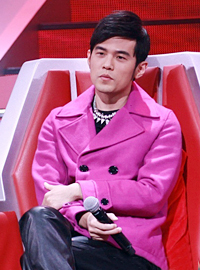 词汇
词汇(来源:沪江英语)
Scientists have discovered that some made-up words such as subvick, bollyze and quingel are far more amusing than others. This is because people find nonsense words with uncommon letter combinations more unexpected and humorous than those words with probable sequences of letters.
科学家发现诸如subvick, bollyze和quingel之类的混合词比其他词汇更加有趣。这是因为人们发现,不常用字母拼成的无意义词汇比正常词汇更令人惊喜和引人发笑。
A study, led by a team from the department of psychology at the University of Alberta, Canada, examined the theory that some nonsense words are funnier than others. The team used a computer programme to generate thousands of random nonsense words.
加拿大阿尔伯塔大学的心理系团队进行了一项实验,用于检查该理论,即无意义词汇是否比其他词汇更加引人发笑。该团队利用电脑程序生成了上千个随意的无意义词汇。
Any words that sounded the same as real words were removed from the test. Students were asked to compare two non-words and select the option they considered more humorous.
和正常词汇读音相同的无意义词汇会被删除。参与实验的学生被要求对比两个无意义词汇,并且选出他们认为更引人发笑的那个词。
In the second part, they were shown a single non-word and asked to rate how humorous they found it on a scale from one to 100. Researchers discovered that some words such as blabesoc were indeed funnier than other non-words, like anotain.
对于另外一部分学生,工作人员先向他们展示一个无意义词汇,然后让他们在1-100之间选个数字来评定这个词的幽默性。
Researchers discovered that some words such as blabesoc were indeed funnier than other non-words, like anotain. Chris Westbury, a psychology professor and lead author of the study, said: ‘The weirder the word is, the funnier the word is.
实验者发现,诸如blabesoc这类的无意义词汇确实比像anotain这类的无意义词汇更引人发笑。心理学教授克、该实验的主要发起人里斯·韦斯特伯里说:“词汇越奇怪,就越引人发笑。
The results were released in a paper entitled, Telling the World’s Least Funny Jokes: On the Quantification of Humour As Entropy, and published in the Journal of Memory and Language. The findings back up the 19th century theory from German philosopher, Arthur Schopenhauer, who proposed that humour is a result of an expectation violation.
实验结果以”讲述世界上最不可笑的笑话——关于幽默做为平均信息量的品质“为题,发表在《记忆与语言杂志》上。这一发现印证了19世纪德国哲学家亚瑟·叔本华的理论,他认为幽默就是违背预期的。
Identifying the funniest words is already a skill of good comedians or comic writers. The paper says: ‘The effect may also have practical effects in product naming, if it can be shown that the computable funniness in a name is a relevant factor in consumer behaviour.
辨别最幽默词汇已经成为优秀喜剧演员或喜剧作家的必备技能了。论文中说到:如果能够证明产品幽默的名称会影响到消费习惯,那么这可能会对产品命名产生实际的影响。
We predict that consumers will strongly prefer (funny Non Words) ‘whook’or ‘mamessa’to (unfunny Non Words) ‘turth’or ‘suppect’for a new product name.
我们相信,与诸如‘turth’或者 ‘suppect’这类不可笑的无意义词汇相比,消费者们会格外青睐‘whook’ 或者 ‘mamessa’这类滑稽的无意义词汇。






























































































